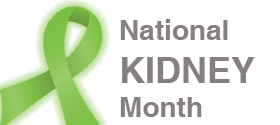I’m lovin’ all the build-up to the NCAA men’s basketball tournament. Like many of you, I’ll be filling out my brackets and talking a little smack to my fellow pool participants. There will be some tough choices – in the past I’ve even made the difficult choice of picking the Gators. It goes against my entire being to cheer for them. Before you even start, I’m fully aware that my beloved Noles have a little trouble making it to the dance–I pout about this each season.
http://www.freedigitalphotos.net/images/Children_g112-Grumpy_Child_p70716.html
March has become synonymous with a full-scale national shutdown of productivity for 2 & ½ weeks. I’m sure I can’t be the only one who is a bit amused by this article – Feds: Put That NCAA Bracket Away and Get Back to Work – which emphasizes the prohibition of “federal workers from engaging in any gambling while on federally owned or leased property, or while on duty.” Nice attempt to try and instill productivity amongst the ranks; let me know how that works out for you.
What many may not know is that March is also National Kidney Month. According for the Centers for Disease Control and Prevention, 1 in 10 American adults, more than 20 million, have some level of chronic kidney disease (CKD) (http://www.cdc.gov/diabetes/pubs/pdf/kidney_factsheet.pdf accessed March 20, 2014).
Kidney disease affects all age groups. However, there is cause for concern for those of us sitting in the middle-aged cheap seats. According to the National Institutes of Health, CKD is increasing the fastest for people age 60 and older. For example, CKD in people over 60 years old has jumped from 18.8% to 24.5% for the timeframe of 2003 to 2006 (National Kidney and Urologic Diseases Information Clearinghouse (NKUDIC) accessed here on 3/20/14 http://kidney.niddk.nih.gov/kudiseases/pubs/kustats/). During this same time period, the prevalence of CKD for people ages 20 to 39 remained below 0.5%.
The National Kidney Disease Education Program has many resources available to help you understand and prevent kidney disease. Their online resource Questions and Answers About the Kidneys and Kidney Disease provides exceptional information and answers to questions such as: What Is Kidney Disease? Are You At Risk For Kidney Disease? How Can I Protect My Kidneys?
I’ve seen up close and personal how kidney disease and its consequences affect lives. My father-in-law suffered from end-stage renal disease; he was a dialysis patient over his last few years with us. Additionally, one of my dearest friends suffers from a rare form of kidney disease. I was honored to chronicle her story, and the story of her brave family, in this article for Laker Magazine: “Unbreakable Bonds” Jane’s story, and the story of her son, highlight our enormous need for living donors. According to the Living Kidney Donors Network there are over 80,000 people currently on the kidney transplant waiting list and 4,500 people die each year awaiting a kidney transplant.
As you’re watching the upcoming games and crying over your picks as your brackets crumble (I am sure I will be right there with you), please remember that March is also a month set aside to help raise awareness about kidney health, disease prevention, and living donor needs and opportunities. Please help spread the word; Donate Life.
Have you had experience with kidney disease? What would you tell someone who asks “what can I do to help?”
Cheers,
Kimba



Hi Kimba
Thank you for the great article and contribution to raising awareness for kidney disease. What we can do to help is this: Education and information is so important, as is prevention. Be pro-active, be aware before the symptoms arise and if you have kidney stones (My maternal Uncle had them as a young man. He said it was so painful), to get treatment. Seek the best advice and support, through medicine and organizations.
My thoughts – Vanessa
Vanessa, I couldn't agree more, prevention is key. I've learned so much in the last month about keeping my kidneys healthy!!
Hi Kimba,
Thank you for increasing awareness about kidney disease. It's something we don't think about much, but the outcomes of things like kidney stones and dialysis are worth taking the extra time for prevention to avoid!
~Christina
Hi Christina. Dialysis is really tough on the body. Life-saving, but tough. Early detection and knownig the signs of kidney disease are SO important.
I am not a sports fan. Well – live. I like any thing live and in person, but I don't follow any team or sport enough to participate in anything like March Madness – though it looks really fun! Good luck.
I have not myself had any experience with kidney disease but the stats you shared are staggering. I had no idea. Thanks for educating me.
Kate, even though I watched my father-in-law suffer from kidney failure, it was not until recently that I spent some time really educating myself about kidney disease, prevention, and the HUGE need for living donors. There are some great resources out there for anyone who has questions or needs assistance.
I feel so out of the March Madness Loop so I am cramming to catch-up.
I work with elderly clients and just lost one to end stage renal failure. I also have a sister-in-law that is recovering from kidney cancer.
Good message!
I'm sorry about your loss regarding your patient; that must be very difficult. Hope your sister-in-law's recovery continues to move forward and that she heals quickly.
I must confess I am not a sports fan – well, with the exception of hockey which has always had a rather strange effect causing me to spontantiously jump up waving my arms and scream profanities. But anyway, thanks for the heads up on National Kidney Awareness Month.
Honestly, how can anyone not like hockey?! The opportunities for audience participation keep me coming back (I'm a Caps fan).
Thanks for your article. This gives us an opportunity to give importance to the value of the care of our kidneys.
Hi Lorii. I've learned that prevention is key AND that it is vitally important to recognize the symptoms of kidney disease in order to be as proactive as possible.